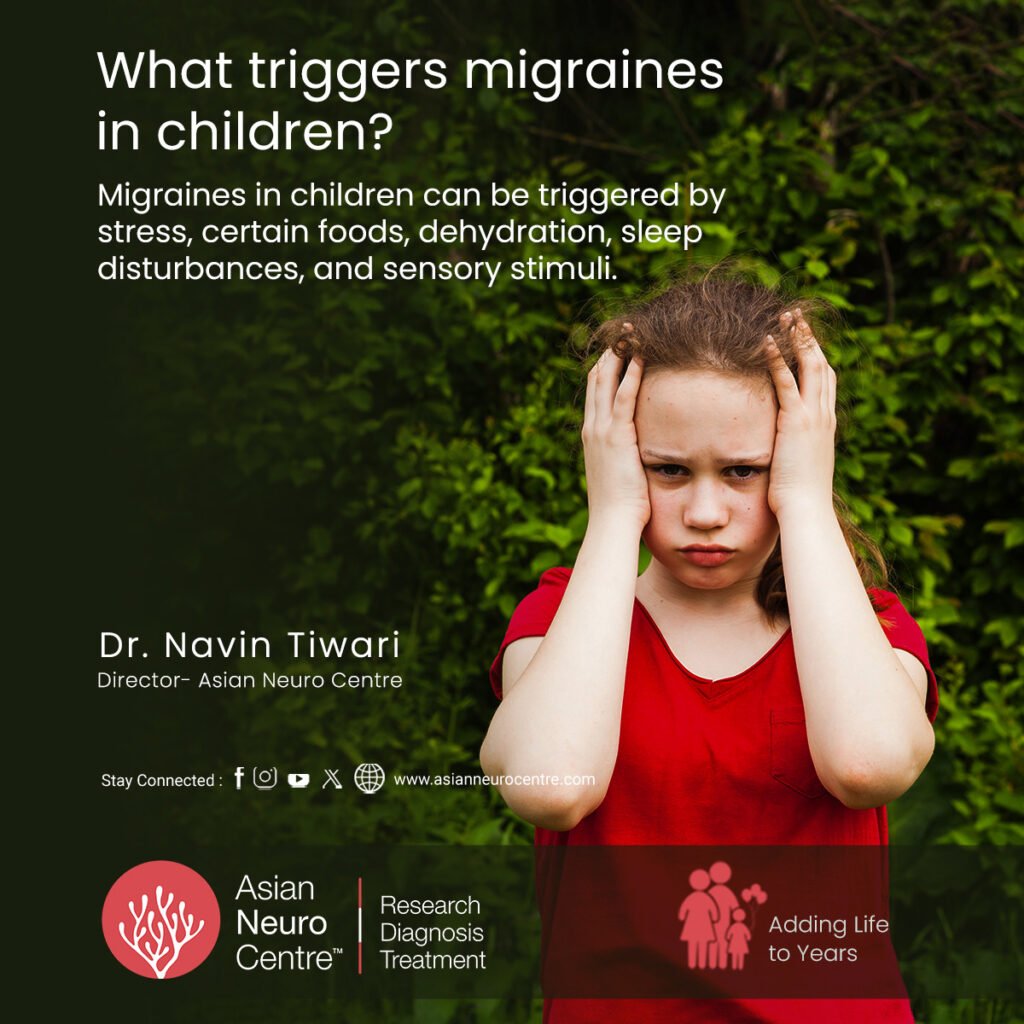- Have any questions?
- 911 12345 29
- info@asianneurocentre.com
What Triggers Migraines in Children?
Is Migraine Genetic? – Asian Neuro Centre
May 23, 2024What Type of Headache Occurs in a Brain Tumor?
June 1, 2024What is Migraine in Children?
Migraines in children can be triggered by various factors like skipped meals, dehydration, stress, and sensory stimuli such as bright lights or strong smells.
Hormonal changes, weather shifts, and doing lots of physical activity can also bring them on. It’s important to spot what triggers the migraines and try to avoid them.
Making sure kids eat regular meals, drink water, relax when stressed, and stick to a steady sleep schedule can help.
If migraines keep happening, it’s best to talk to a doctor for advice on how to manage them and make them better.

What Triggers Migraines in Children?
Migraines in children can be triggered by a variety of factors. Here are some common triggers:
- Food and drinks: Certain foods and drinks can trigger migraines in children. These include chocolate, cheese, and processed meats.
- Skipping meals: When kids don’t eat regular meals or skip meals altogether, it can lead to a drop in blood sugar levels, which might trigger a migraine.
- Dehydration: Not drinking enough water can also bring on a migraine. It’s important for kids to stay hydrated throughout the day, especially if they’re active or it’s hot outside.
- Changes in sleep patterns: Not getting enough sleep or having irregular sleep patterns can be a trigger for migraines in children. It’s essential for kids to have a consistent sleep schedule and get the recommended amount of sleep for their age.
- Stress: Stressful situations at home, school, or with friends can trigger migraines in children. Teaching kids healthy ways to manage stress, like deep breathing or taking breaks when they feel overwhelmed, can help reduce the likelihood of a migraine.
- Hormonal changes: Hormonal changes, especially in adolescent girls, can trigger migraines. This is often linked to the menstrual cycle and can be managed with the help of a doctor.
- Weather changes: Changes in weather patterns, such as changes in temperature, and humidity can trigger migraines in some children.
- Physical activity: Intense physical exertion or sudden changes in activity levels can trigger migraines in susceptible children. Encouraging regular, moderate exercise and warm-up routines can help prevent migraines related to physical activity.
Dr. Navin Tiwari
Consulting Neurologist
